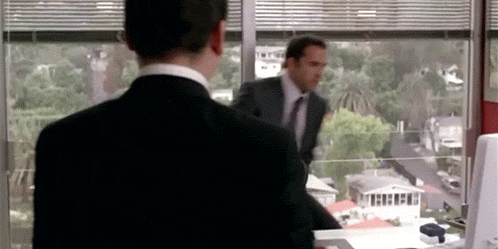Digital Detox: What It Is, Why You Need It, and How to Embrace It
We’ve figured out when it’s time to start a digital diet. Additionally, we’ve gathered the primary rules for digital detox and found options for those who aren’t ready to give up their gadgets for an extended period.
We’ve figured out when it’s time to start a digital diet. Additionally, we’ve gathered the primary rules for digital detox and found options for those who aren’t ready to give up their gadgets for an extended period.
What is a Digital Detox?
This term refers to a period when a person, exhausted by the continuous flow of information, stops using their smartphone, tablet, and computer outside of work. It is a kind of respite during which one can spend their free time engaging in face-to-face conversations, walks, creative activities, or meditation instead of on gadgets.
Alongside the concept of digital detox stands “Digital Asceticism“. It can also be called “digital abstinence”. This lifestyle acknowledges the importance of the latest communication tools and internet technologies. However, it doesn’t involve being glued to one’s phone every free moment. Media asceticism is the effort to wisely limit one’s time spent online.
 Social networks, messengers, streaming services are unique brain attractions. We get so accustomed to virtual entertainment that we become dependent on gadgets, leading to:
Social networks, messengers, streaming services are unique brain attractions. We get so accustomed to virtual entertainment that we become dependent on gadgets, leading to:
- Phubbing: The habit of getting distracted by a smartphone during a live conversation with someone.
- Nomophobia: The fear of being without a mobile phone, i.e., forgetting it at home, draining its battery, or being out of network coverage.
- Screen voyeurism: The tendency to sneak a look at someone’s private life through the screen of their smartphone in public transport, offices, or other crowded places.
Of course, in today’s world, it’s impossible to completely give up gadgets, but it’s entirely feasible to go on a short digital diet.
The Benefits of a Digital Detox
Firstly, you genuinely immerse yourself in whatever you are doing, be it work, a family dinner, meeting friends, or exercising at the gym. If you don’t get distracted by your smartphone every time it beeps, you can truly enjoy events and moments in the present.
 Secondly, you begin to find interest outside the internet. Try to lift your gaze from the screen – and you’ll notice trees greening day by day or the diversity of people in the subway. Moreover, you might find that your colleagues discuss quite intriguing topics during lunch.
Secondly, you begin to find interest outside the internet. Try to lift your gaze from the screen – and you’ll notice trees greening day by day or the diversity of people in the subway. Moreover, you might find that your colleagues discuss quite intriguing topics during lunch.
Thirdly, you gain a bit more free time. Instead of scrolling through Instagram* before sleep, start reading a physical book. During work breaks, do some stretching exercises and exercises for your eyes. While commuting or during breakfast, set your phone aside and think about the day’s plans or people you haven’t seen in a while.
Fourthly, you become more tranquil when your smartphone isn’t ringing, beeping, or vibrating every minute. Whether it’s notifications, spam, news, or a friend liking another friend’s post – in many situations, this becomes annoying and distracting.
How to Determine if It’s Time for a Digital Detox
Comparing internet usage to nutrition can be insightful. As long as you’re cooking delicious, diverse dishes and consuming them in moderation, there’s no issue. However, with the onset of excess weight, shortness of breath, and health problems, you’d undoubtedly consider a diet and exercise. Similarly, with the consumption of digital information, a balance needs to be maintained. According to researchers, 77% of internet users admitted that they periodically need a break from the web, and 44% of respondents said they consciously disconnected from the internet for a day or more.
To understand if you need a digital detox, a simple checklist can help. The more statements from the list that describe your lifestyle, the stronger your dependence on modern technology, and the more you need a break.
- As you move around your home, you carry your smartphone with you.
- Often, you turn on the TV or YouTube, open Facebook* on a laptop or tablet, and simultaneously scroll through photos on Instagram* on your phone.
- After viewing news on social media, you refresh your feed and immediately begin scrolling again.
- Seeing photos of fashionable looks on your feed makes you want to discard your clothes and buy new ones.
- After posting a photo or story on social media, you check the number of views and likes every minute.
- You always respond to messages instantly and expect others to reply just as quickly to yours, becoming irritated if you have to wait.
- You feel a surge of anxiety, bordering on panic, if you can’t find your phone nearby.
- The first thing you see upon waking and the last thing before sleeping is your smartphone screen.
- Stress, sleep deprivation, rapid fatigue, and multitasking issues have become your constant companions.
- You don’t read news articles fully and thoughtfully. You’re only interested in the headlines instead of the content.
How to Organize a Digital Detox
Merely making a resolute statement like “I’m tired of my phone, I’m taking a break” rarely leads to success. Try to understand and recognize what you’re missing while aimlessly staring at a screen. For instance, an hour spent on social networks at home could be used for a bike ride or a walk with your dog. While a dating app can be useful, a party at a friend’s house might be a more effective way to find a significant other. Think about what you genuinely want to do in your free time.
If it’s impossible to completely abandon gadgets, take one-day breaks. For instance, plan out your Saturday and dedicate it to enjoyable activities not related to the internet, calls, or messengers. Alternatively, you can practice having detox hours every day.

Before you go offline for an extended period for the first time, notify your relatives, friends, and even colleagues. You wouldn’t want them calling police stations or hospitals in a bid to find you.
Review your phone’s settings: turn off unnecessary notifications, clean up your social media friends list so you aren’t distracted by another photo of your mother’s school friend’s sister’s cat. Smartwatches or multifunctional fitness bracelets can be great aids. With them, you’ll stop reaching for your smartphone with every call, but won’t miss a genuinely important message.
When planning your next vacation, consider digital-detox trips. Their popularity is skyrocketing right now. Such trip agendas include yoga, meditation, sightseeing natural beauties, and philosophical lectures. Sometimes, tourists are asked to hand over their smartphones for safekeeping in exchange for a guide to surviving without gadgets. Isn’t that a challenge for the modern individual?
Five Principles of Digital Detox
So, how do you properly take a break from social networks and gadgets? Dmitry Solovyov, a researcher of human behavior on the internet and the author of the book “Digital Dictionary,” which focuses on online addiction and combating it, suggests the following steps:
- Periodically disconnect from the internet completely. For your first detox, it’s better to change your location and go somewhere – for instance, take a weekend getaway. Inform your friends and followers on social networks that you’re on a digital detox and won’t be responding to messages.
- Establish boundaries between personal life and work. Create rules for when you respond to messages and when you don’t, and make them clear to colleagues. A lot depends on your team and management, but some agreement can certainly be reached. If you’re in a leadership position, set an example for your subordinates: don’t write to them on weekends or after work and use the delayed message function. If work communication takes place on messengers, create a separate work account and reserve your main one for personal correspondence.
- Practice a “digital diet.” Refrain from using your smartphone after a certain time or set limits on the apps you allow yourself to use. For instance, set a limit on browsing social networks that give your reward system a quick dopamine hit. Switch your screen to grayscale, making it harder to get hooked on a news feed – the internet will seem “plain” and unappealing.
- It’s essential to define the purpose of disconnecting from the network. Plan what you’ll do while taking a break from gadgets: spend time with your family, read a book, or visit friends.
- Indulge in mini-detoxes – intervals during the day when you not only refrain from using gadgets but also don’t think about them. Use this time for a short break from tasks and the internet. This could be a 10-minute break between work meetings where you look out of the window or do some stretches. Or an hour after work spent walking or engaging in sports. Such micro-detoxes benefit from knowledge of various physical or mental practices – often they require just ten minutes, but their effect is substantial.